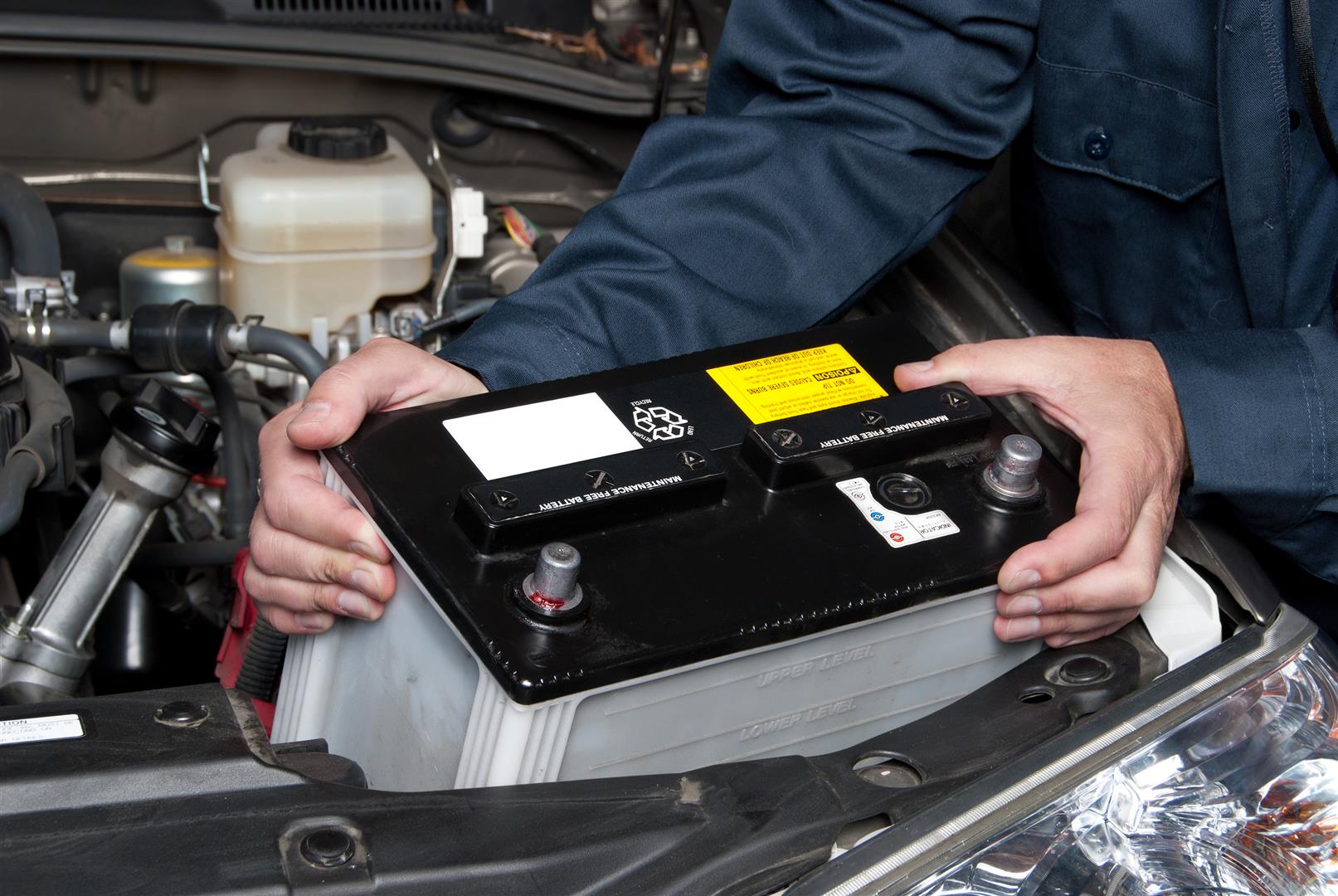Caring for A Car Battery

One of the most integral features of an automobile’s anatomy is the car battery. Simply put, without a battery, your car will not start, so it is important to keep your battery as healthy as possible. But you might have some questions about the battery inside your vehicle.
What is the Lifespan of a Car Battery?
While the lifespan of a battery truly varies from vehicle to vehicle, and is dependent on many outside factors, the average life of a car battery is approximately four years. The two main factors that cause excessive wear on a battery are volatile weather and poor driving habits.
Excessive heat can cause the mixture of water and acid inside a vehicle battery to evaporate and cause harm to a battery’s internal components. This will result in a shorter lifespan for the battery.
While you might not have control over the climate that your vehicle is driven in, you do have control over the way that you drive your vehicle. There are multiple factors including repeated “short trips” and stop-and-go driving that do not allow the battery to properly recharge after repeated use.
Are There Any Telltale Signs That My Car Battery Might Be Dying?
If your battery is on its last legs, there are a few telling signs that it may be time for it to be replaced.
- Car Electronics Not Operational - Probably the easiest way to tell if your battery is dying or dead is that the electronic features of your car don’t operate. If your key remote will not lock or unlock doors, or the dashboard does not illuminate upon starting the engine, you are most likely dealing with a dead battery.
- A “Rotten” Smell - Another sign of a dying battery will be a smell that resembles “rotten eggs.” The mixture of water and sulfuric acid could disturb the battery’s internal components, causing the battery to overheat and a sulfuric smell to emanate from the area.
- A “Slow Crank” - If you attempt to start your vehicle and the engine does not start as quickly as it usually does, it might be a sign of a dying battery. While there might be enough of a charge to eventually start your vehicle, if it cranks slowly, be sure to leave your engine running in an attempt to give it a little bit of charge before having the battery inspected.
What Can I Do to Keep My Battery Healthy?
In order to ensure that you are doing everything possible to keep your battery healthy, there are several quick tips to keep in mind.
- Drive Your Car, Often - As with any battery, the chemicals inside will deteriorate over time. The longer a vehicle is not in use, the longer a battery goes sitting idle, which causes it to die faster. When driving your car, be sure to drive it a good distance so as to give the battery enough time to recharge.
- Keep an Eye on Your Electronics - When your vehicle is not in use and engine is not running, make sure that all vehicle electronics, including headlights, air conditioning, and even phone chargers are not left “on.” A battery can be drained if electronics are on but the engine is off. Keep in mind that if a door is left slightly ajar, the cabin lights will illuminate and can drain the battery.
- Check Your Battery Frequently - Batteries are susceptible to corrosion, so it is important to clean your battery on a regular basis to prevent any corrosive build-up. It is also important to make sure that your battery is secured in its terminal, because if it comes dislodged, the battery acids can slosh around and cause battery damage.
What do I do if I have a Dead Battery?
If you see any of the warning signs of a deteriorating battery or if your battery has died and you can get a jump, take it into your nearest Milex Complete Auto Care. The professionals there will be able to replace it and get you back on the road in no time.